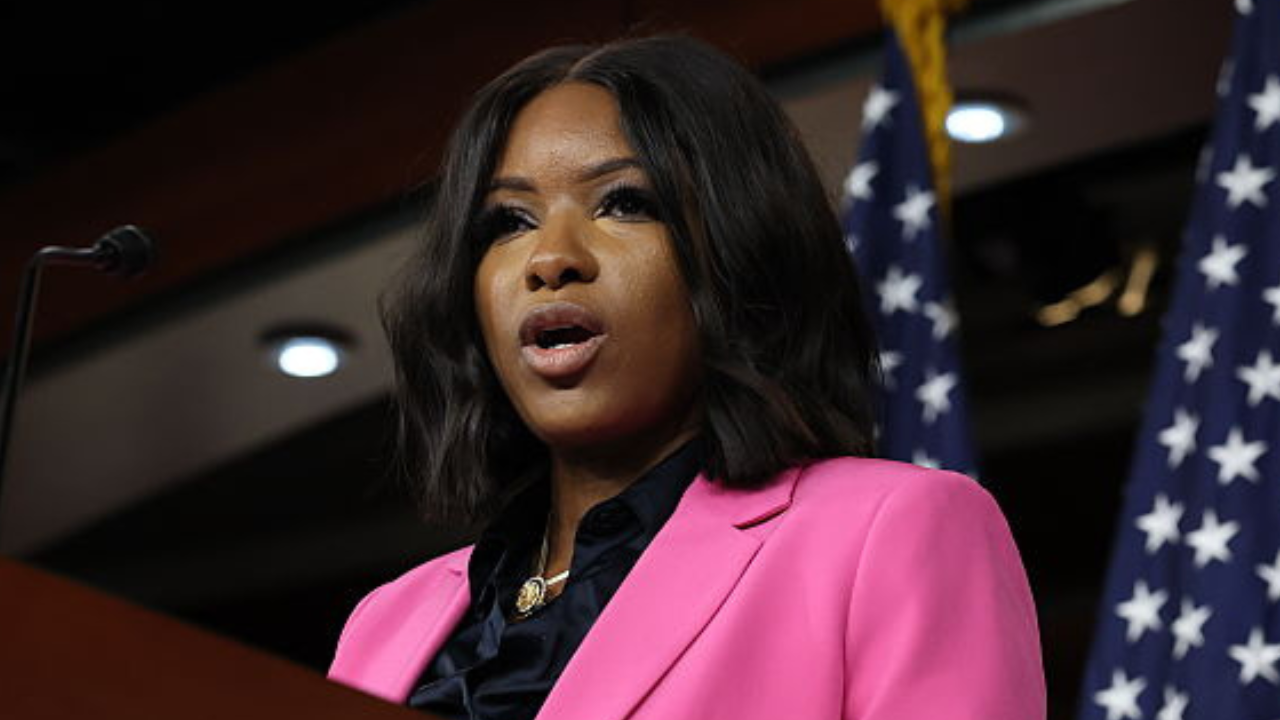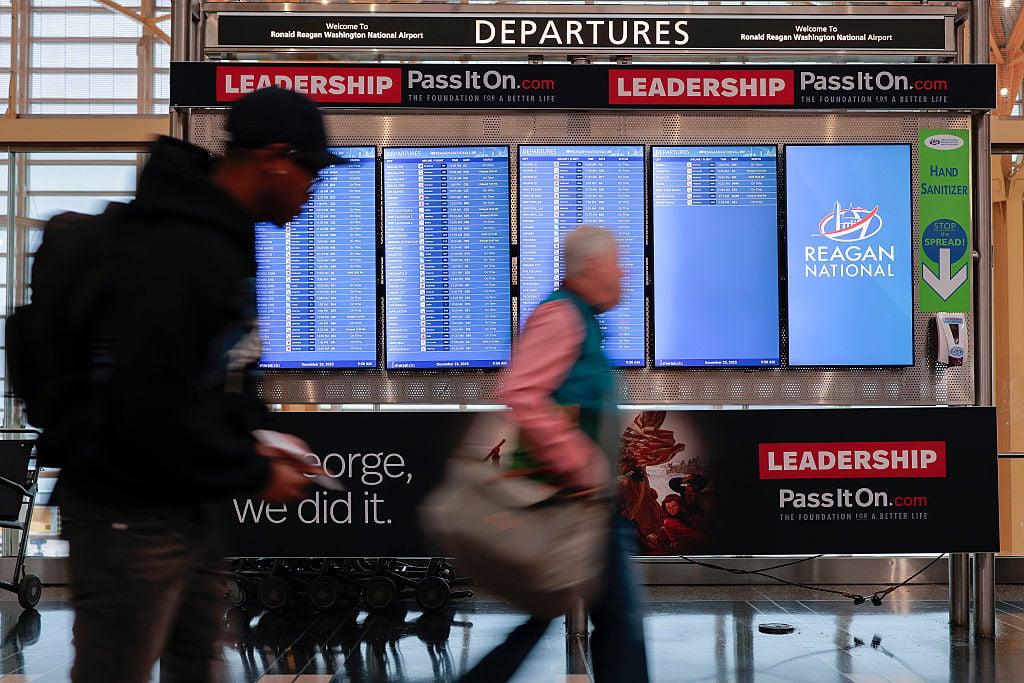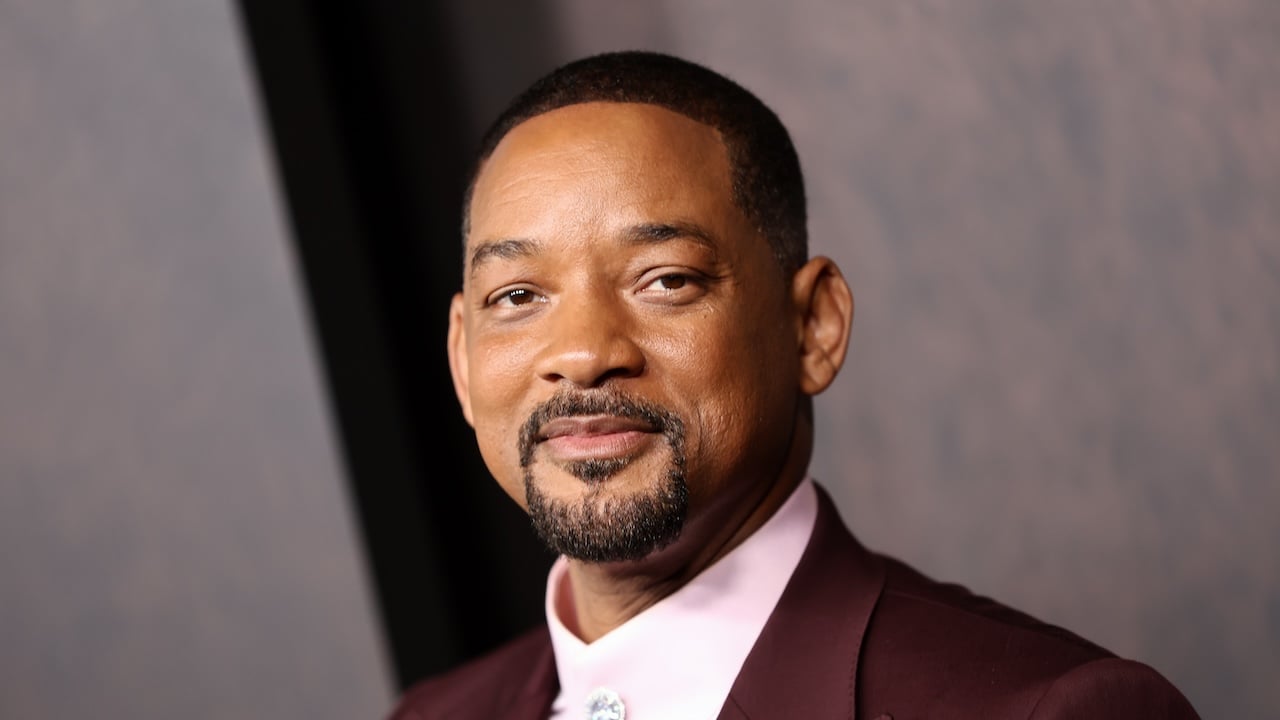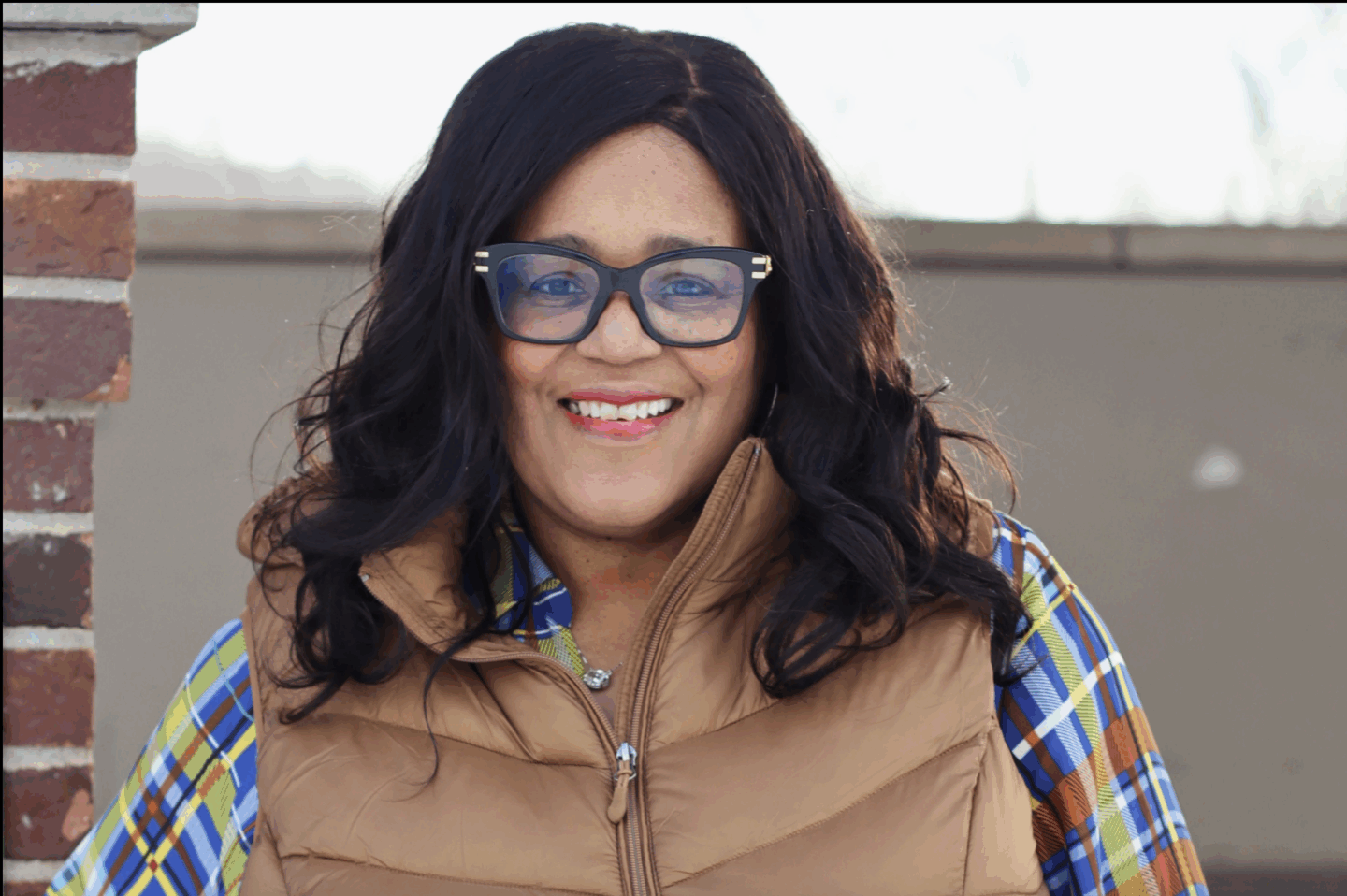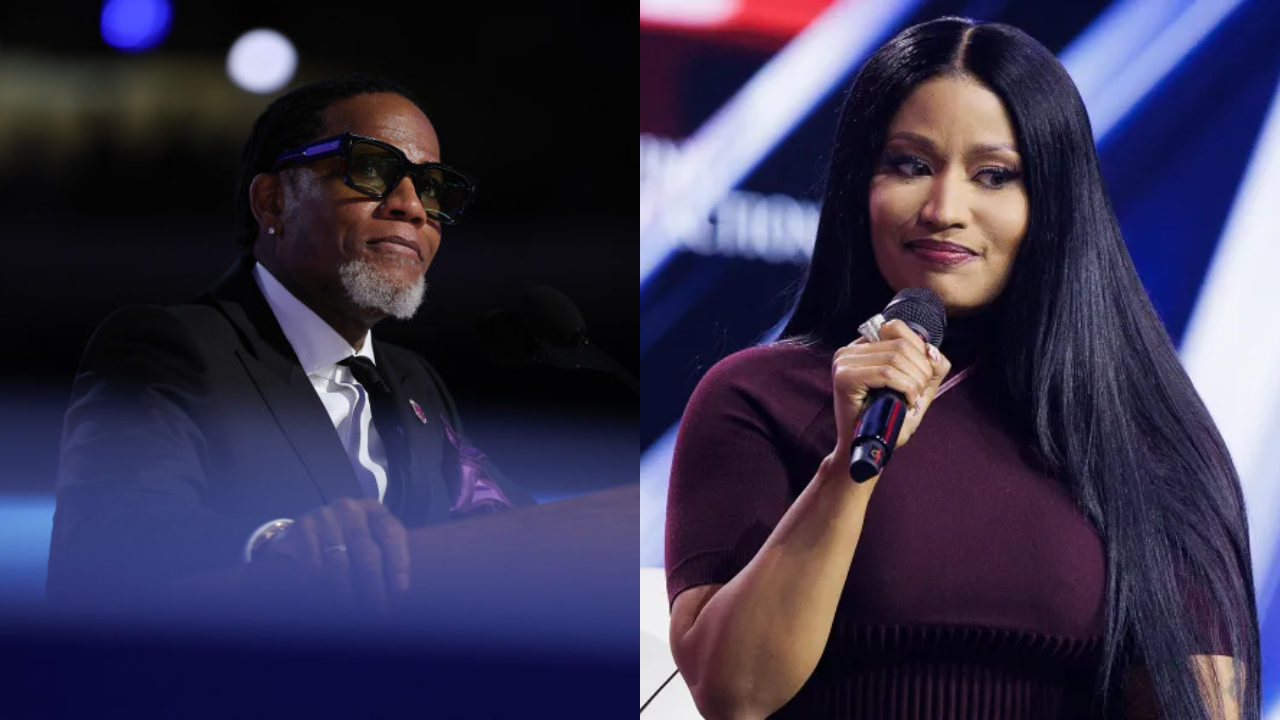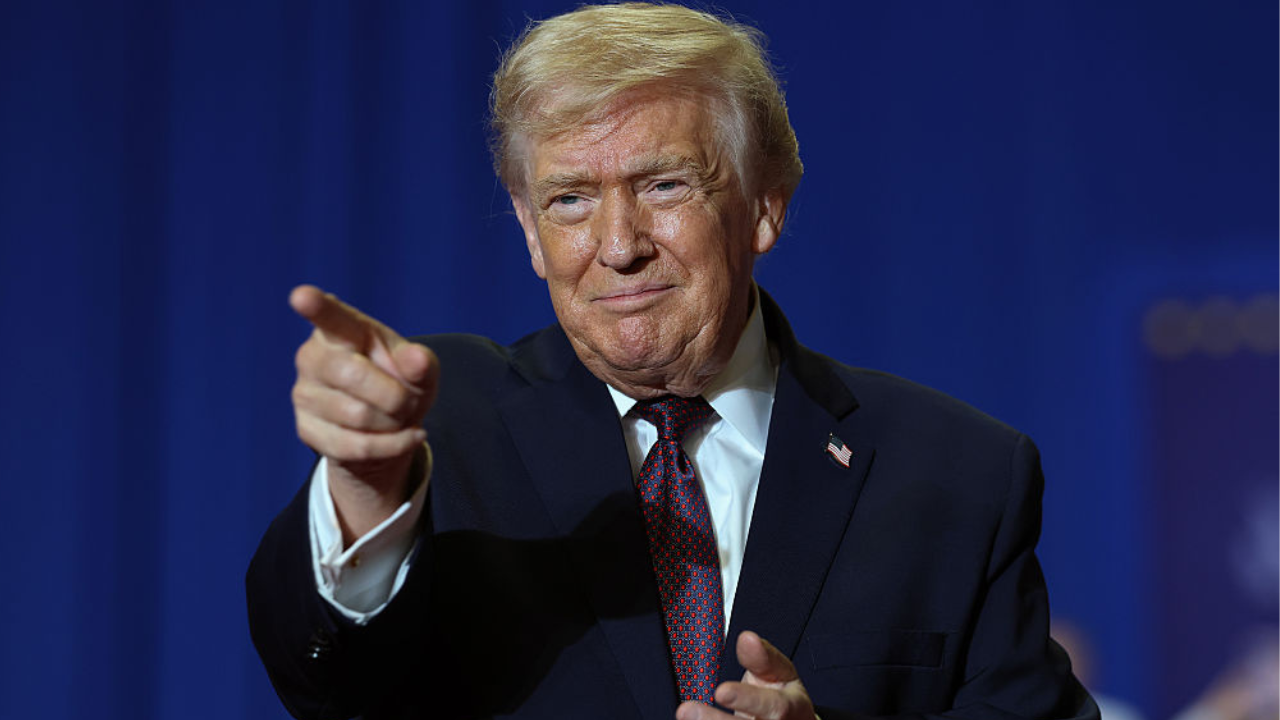Atlanta Falcons receiver KhaDarel Hodge is highlighting HBCUs through his cleats

It took exactly one game in college for Atlanta Falcons receiver KhaDarel Hodge to realize the difference between HBCUs and then-Power 5 football programs.
In Week 2 of the 2016 season, Prairie View A&M, a historically Black university in southeast Texas, was playing a “money game” against Texas A&M. The Aggies were far from the toast of the Southeastern Conference — they went 4-4 in the conference the season before — but they had bigger players, a bigger roster, and a much bigger budget.
Texas A&M had 672 total yards that day, returned a 73-yard punt return for a touchdown, forced a safety, and won 67-0.
During the 2016 fiscal year, Prairie View athletics’ total revenue was $17.8 million. Texas A&M’s was $211 million.
“I was like, ‘Yeah, they got wayyyyy more resources than we have,’” Hodge told Andscape last week. “You can see it in the players, how they’re built up. They have way more depth.
“You can see the money people put into those schools and into those programs.”
Taylor McLaughlin/Atlanta Falcons
The lack of funding that schools like Prairie View face is why Hodge, in his eighth season in the NFL, is spotlighting HBCU Elite for the NFL’s annual “My Cause My Cleats” campaign. HBCU Elite is an Atlanta-based nonprofit whose sole focus is improving the financial and resource deficits facing athletic programs at historically Black colleges and universities.
“My Cause My Cleats,” which started in 2016, allows players to wear customized cleats in support of a charitable cause of their choice. Along with HBCU Elite, Hodge is also supporting The Hidden Opponent, a mental health advocacy organization catered toward athletes, which he honored during last season’s cleats campaign.
“It starts up top, first,” Hodge said. “If you’re not functioning up top, then nothing else physically really matters.”
HBCU Elite was founded in 2020 by then-Clark Atlanta women’s tennis coach Tara Turner, who experienced financial struggles as both a player and coach at the school. Clark Atlanta was struggling financially, even as Turner became an all-conference player from 2005–09 and later as a SIAC championship-winning coach from 2019–23. The team had no assistant coaches, and when she played head coach Oliver McClendon drove the team to matches in an old, run-down van.
Turner said she chose to attend Clark Atlanta on an academic scholarship rather than the athletic one offered so the team could add another recruit. When she was hired as coach in 2019, Turner still had to drive the team to matches, and they were practicing on courts that desperately needed resurfacing. She lacked a travel budget to recruit high school players to the program.
“I go to the business office and … I’m like, ‘OK, what’s my budget?’ $842,” Turner said. “I was like, ‘OK, is that per trip?’”
Brooke Sutton/Getty Images
Based on those experiences, Turner created HBCU Elite to address the under-resourcing in HBCU programs across the country. The organization has four stated objectives: assist in placing high school athletes at HBCUs; develop mental health programming; provide internships and entry-level job opportunities for athletes with partnered companies; and, most ambitiously, provide financial support to athletic programs through grants and sponsorships.
Since 2021, HBCU Elite has also run its Field Daze camp, a three-day program that offers top HBCU quarterbacks, receivers, defensive backs and special teamers free training sessions with veteran trainers like Quincy Avery (quarterbacks) and Hilton “Route King” Alexander (receivers). Field Daze, which branched out into women’s basketball this year, also offers programming to help athletes, whether they go on to pro careers. Programming includes mock interviews, resume reviews, as well as NFL combine training.
“Just really trying to develop the entire athlete,” Turner said.
HBCU Elite, which offers its services free of charge, is funded by a combination of sources. Turner solicits donations and sponsorships from businesses in the Atlanta area, where the organization is based. Grants from the Alabama Power Foundation, Atlanta Fulton County Recreation Authority and the NFL players-founded Players Coalition have also provided funding and other resources.
Hodge, who attended historically Black Alcorn State in 2014 before transferring to Prairie View, learned of HBCU Elite from Falcons assistant coach K.J. Black, a fellow Prairie View alum. Hodge liked what HBCU Elite was doing and provided funding for Field Daze in 2024.
“She showed me that they were really committed about what they were doing and serious about what they were doing, so I felt like if they’re taking things seriously, I will too,” Hodge said of Turner.
When he ran into Turner at the Super Bowl in New Orleans this year, Hodge said he’d choose HBCU Elite for “My Cause My Cleats.”
“She probably didn’t think I was serious about doing it,” he said.
Jeff Robinson/Icon Sportswire via Getty Images
HBCUs are near and dear to Hodge’s heart. His grandfather encouraged him to attend one. His cousin, the late former NFL MVP Steve McNair, starred at quarterback for Alcorn State from 1991-94.
Hodge said he loves the family feeling of HBCUs and the way everyone looks out for one another across the various colleges. He also loves the food: Alcorn had “Chicken Wednesdays” at the food hall every week, which felt like a weekly mini homecoming.
“It was crazy,” Hodge said. “Everybody would come out in the cafeteria, throw on your best look, and you know the whole cafeteria’s gonna be packed.”
Hodge is sensitive to perceptions of HBCUs, particularly in sports. When he’s in NFL locker rooms (Hodge has also played for the Rams, Browns and Lions), players usually debate their alma maters. When HBCUs are brought up in these discussions, the level of competition is always questioned, which Hodge hates.
“Personally, I get tired of us being seen as the little brother to a lot of other schools,” he said. “I feel like it’s really disrespectful.”
The disrespect stems from the significant revenue gaps between the Prairie Views and Texas A&Ms of the world. It’s hard for a school with a $17 million budget to compete with one whose locker room renovations cost nearly twice that ($32 million).
The solution to that imbalance is simple: HBCU programs need more money. This can be achieved in myriad ways, but it starts with alumni donations. Name, image, and likeness funding — easier said than done — would allow HBCUs to attract the talent needed to boost the bottom line.
“If you start investing in the NILs, you start getting those high-caliber players and investing into them, then it’ll bring more to the school, because once you start winning the money starts coming,” Hodge said.
HBCU Elite hopes to play a part in starting that process. Turner hopes to one day provide uniform and equipment grants to schools and secure hundreds of thousands of dollars in additional funding. That goal may take some time: HBCU Elite has never brought in more than $50,000 in a year since 2020, according to Internal Revenue Service records. However, Hodge’s cosign through “My Cause My Cleats” is a starting point.
“His support — financial and even through things like this — really helps us build pathways that will last way beyond a season or one specific camp,” Turner said.
The post Atlanta Falcons receiver KhaDarel Hodge is highlighting HBCUs through his cleats appeared first on Andscape.
What's Your Reaction?
 Like
0
Like
0
 Dislike
0
Dislike
0
 Love
0
Love
0
 Funny
0
Funny
0
 Angry
0
Angry
0
 Sad
0
Sad
0
 Wow
0
Wow
0




